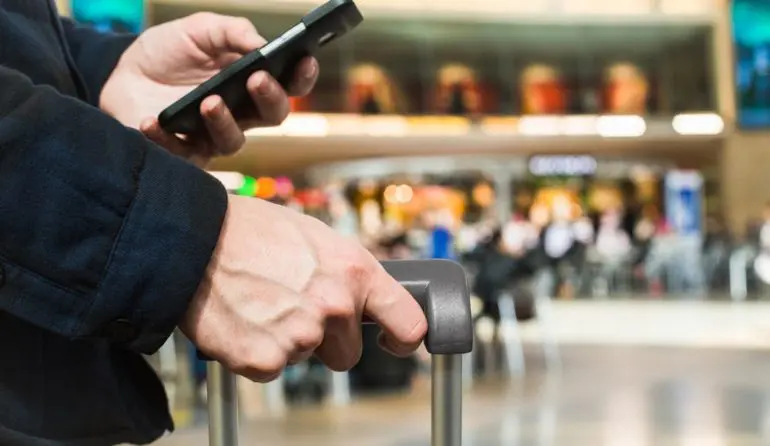As of June this year, the EU introduced it’s new ‘roam like at home’ regulation.
Put simply, this allows you to use your company or personal phone while travelling in the EU country without paying any extra roaming charges.
These rules apply to calls, either on mobile or landline, – texts, and data. So, you’ll pay the exact same amount while abroad as if you were using your phone from your home country. It’s a huge step forward in terms of both simplicity and consumer-rights.
What this means for businesses
And for businesses, being able to use your phone while travelling within the EU zone without fear of incurring hefty charges will be a great comfort. Communicating when moving across the European Union has now become infinitely simpler, meaning one less stress when it comes to business travel.
Best of all, businesses don’t need to do anything to benefit. Existing contracts have been automatically updated and it’ll be the default option for any new mobile contracts bought going forward. Surely a win, win?
It’s not all plain sailing
Unfortunately, as with many things, there are some limitations.
For example, it’s important that you remember that roaming is only included as a part of your specific tariff bundle. So, if you have contract that offers 1000 minutes and 500MB in data, then using anything beyond this will, once again, incur a charge (the size of which will be specific to your provider).
Similarly, depending on your contract and mobile operator, some extra rules and limitations might apply to your data usage. Still, it’s unlikely you’ll find yourself stuck without any 4G in the middle of writing an important email to a client!
Beyond the EU
Outside of the EU it’s an altogether different story with the UK government recently announcing plans to add VAT to roaming charges for countries beyond the union, adding an extra 20 per cent to the cost of calls, texts, and data usage. There are ways around these charges however, with many operators offering free roaming to countries like Australia, New Zealand and the USA. You should therefore always check your operator’s website for an up to date list of charges per country before jetting off.
Brexit
Finally, the UK’s decision to leave the European Union may change things again. As many businesses and consumers have already asked what happens to the rules? Will things go back to how they were before you could roam like at home? Well that is still to be decided. Once the two-year period is up, and the UK officially leaves the EU, it’s possible that the rule will no longer be enforced and there’s a chance that roaming costs in the EU could return to previous levels, or rise even further. Alternatively, if the government can strike a deal with the EU then overseas roaming rights may remain.
Sadly, there is no guarantee either way, with businesses now forced to play the waiting game. So, go out and enjoy free roaming while you can, it might not last forever.
Paul Lavin, Head of Direct at Carphone Warehouse Business


